- Home
- Captain W E Johns
T2 Return To Mars
T2 Return To Mars Read online
Foreword This is the sequel to Kings of Space. In that story Group-Captain 'Tiger' Clinton and his son Rex, lost in the fog on a deer-stalking holiday in the remote Highlands of Scotland, found refuge in a lonely shooting lodge named Glensalich Castle. There they made the acquaintance of Professor Lucius Brane, a wealthy genius who had for years worked on the project of vertical flight, and had in fact just completed an aircraft of the 'flying saucer' type which he had named the Spacemaster.
Knowing Tiger by reputation as one of the 'back-room boys' at the Royal Aircraft Experimental Establishment, he had, after confiding in him, asked his advice on some constructional details.
Tiger and Rex then joined the Professor on his preliminary experimental flights, and a landing was made on the moon. Then came a trip to Venus, and finally, a journey to Mars, calling at Phobos (one of the two moons of Mars) on the way. On Mars they found a few surviving members of a dying race of men much like themselves.
In the distant past the Martians, a cultured people, to conserve a diminishing water supply possibly caused by the deforestation of the planet, had cut canals to bring the melting ice from the poles; but in this vast water system had developed a malignant mosquito, pink in colour, which, multiplying to countless billions, had by the constant inoculation of poison, practically wiped out the 'human' population on which it preyed.
The 'red clouds' that had for long puzzled astronomers on Earth were in fact devastating swarms of insects of the mosquito family. Unfortunately, the visitors had themselves been nearly overwhelmed by the deadly clouds and only with difficulty made their escape.
On returning to Earth the Professor resolved to design and build a bigger and better spaceship, introducing such modifications as experience with Spacemaster I had indicated, with the object of trying to save the few surviving Martians from the fate that threatened them. His great fear was that they would arrive too late.
Reading Kings of Space will make some of the incidents narrated in the present volume more understandable, for interwoven in the story is a good deal of fact. For example, those who would question the invasion of our Solar System by comets from outer space, to the peril of the planets of which Earth is one, should know that such visitations occur hundreds of times in the course of a century. Sometimes these comets stay with us.
Sometimes they retire, to return, or perhaps be seen no more. In the long history of mankind we must have been invaded millions of times.
Was there never a collision? We don't know, although we do know from their orbits that the planetoids Hermes, Apollo and Adonis, must have passed relatively close to Earth many times. It can hardly be coincidence that in the old records of every ancient race there are legends, significantly similar, of visitations causing destruction beyond imagination. Such frightful disasters were of course ascribed to the wrath of the pagan gods, but they appear very much like collisions with the tail of a comet.
How else can we account for the dreadful events described in the Old Testament? Long periods of absolute darkness during which the Earth was bombarded with fire, brimstone and red hot stones: noises beyond description, rains of dust and rocks that slew the people and all the cattle in the fields. The crops and forests were destroyed and the whole land laid waste. Mountains rose up. Seas overran the dry ground. Not even kings could escape. Surely this is precisely what would happen if a comet, or any other body, approached us from space. That these things happened is not to be doubted and may explain why the ancients were terrified of the heavens.
Certainly the Earth has had shakings severe enough to rock it on its axis. How otherwise could we find the remains of tropical life in the Arctic? - coral reefs, fossil palm trees, and the like. Today the great continent of Antarctica, which covers the South Pole, is a frozen waste, without a tree; yet ice breaking off not infrequently carries coal. If there is coal under the ice there must at one time have been forests!
Bones, human and animal, have been found hundreds of feet below the present surface of the Earth. How did they get there? Shells and fossil fish found in the sedimentary rock that covers the world's highest mountains tell us that they were once under the sea. What happened?
Such facts may be disconcerting, but they cannot be ignored on that account.
Phobos, one of the two moons of Mars that comes into our story, sets another problem.
These moons were only discovered in 1877, after the telescope made it possible to see them. Yet the ancients must have known of them for they gave them names - the names they still hold. Phobos (meaning Terror) and Deimos (Rout). The Greeks talk of them as the two horses of Mars, dragging his chariot. Why horses? Did they have tails? Comets have tails.
Whatever they were they were visible to the naked eye, from which we are forced to the conclusion that Mars, the ancient god of war, was at one time nearer to us than it is today.
There is a general and natural tendency to suppose that everything in the Universe works the same way as on Earth; that as things happen here so they happen elsewhere; day and night, the months, years and seasons, all following each other in the procession with which everyone is familiar.
This is not the case. There is no fixed order of things, every heavenly body being governed by its own peculiar factors. Because on Earth the sun rises in the east doesn't mean that it rises in the east everywhere.
Owing to the angle of Earth's axis in relation to the Sun both our Poles are cold. But the axis of the planet Uranus is so placed that for twenty years one of its poles is the hottest place on the planet: then the opposite pole moves round and in turn for twenty years enjoys tropical sunshine. Here our period of a month is governed by the Moon. As we have only one moon our calendar is a simple affair. But how many months has Jupiter, which has eleven moons, some revolving in reverse directions?
These examples will suffice to show the sort of problems that will confront navigators when interplanetary flight becomes as commonplace as air travel is today.
W.E.J.
I Outward bound
There was silence in the Spacemaster as it shot through escape velocity into space on its estimated eight day journey to Mars. The five members of the crew, relieved of the strain of the initial acceleration, had relaxed, and were preparing to occupy themselves by such means as had been provided to fill the unchanging hours that lay ahead.
Professor Lucius Brane, the little eccentric scientist-engineer inventor of the spacecraft, sat at the main observation window, hair untidy, spectacles on the end of his nose, notebook on the chart table in front of him, and a bag of caramels, anchored by an elastic band, at his elbow.
Judkins, his imperturbable seldom-speaking butler-mechanic, was at the controls - power, gyro and pressure - their relative positions being those of captain and chief engineer of an ocean liner.
Group Captain 'Tiger' Clinton, DSO, RAF, with his son Rex, were watching the shadow called night sweep across the huge but fast-diminishing globe which once they had called the world, but was now, for purposes of navigation, merely Earth; one of a million units of the Universe within their view. They watched without emotion, for they had seen the spectacle before.
Not so the remaining member of the crew, to whom this was a new and obviously disturbing experience. A doctor had been considered essential to the expedition, and Tiger had found one, a wartime comrade and friend, in Squadron Leader Clarence Paul, MD, better known in the Service as
'Toby'. He was a small, chubby little man of early middle age, with a cheerful expression which, with his figure, had no doubt been responsible for his nickname.
A man of tremendous energy, as small men often are, he had had a great deal of experience in the tropics of disorders caused by insects, malaria, sandfly fever, and the like. A feature
of his nature was a sense of humour that could make a joke of trouble. He also possessed, often to the Professor's bewilderment, a wonderful vocabulary of RAF slang. When Tiger had put the project before him, asking him if he would attend some patients on Mars, he had, not surprisingly, accused him of being 'round the bend'. But when Tiger had produced photographs taken on the previous expedition he went to work on preparations to deal with the situation.
Nearly a year had passed since that memorable first journey to Mars, but such had been the activity designing and constructing the new Spacemaster that as far as Rex was concerned the months had flown. Tiger had returned to Farnborough to complete his work there, but had dashed up to Glensalich for as many weekends as he could manage.
Rex, abandoning his apprenticeship, had acted as 'runner' between Glensalich and the works where the components of the new ship were being fabricated to the Professor's specifications. This had left the Professor free to concentrate on research, for here there was much to be done.
Toby now knew all that had happened on the early voyages, for once a month there had been a conference at Glensalich Castle attended by everyone; and it is doubtful if ever before at any meetings there had been discussed matters of such consequence. All were aware of this. What effect the knowledge they already possessed would have on the general public should the facts become known was a matter for surmise. It would certainly - as Toby put it - start a flap. Governments apparently thought so, averred the Professor, from the way they had tried to ridicule the reported sightings of so-called flying saucers. The adoption of the harmless-sounding name 'saucer' was part of a plan to offset public fears of the unknown. The official American name, UFO, meaning Unidentified Flying Object, was better.
The Spacemaster II was larger than its prototype and em-bodied several modifications, notably in the matter of safety devices. Learning a lesson from their collision with a small meteor, the air supply, an improved mixture of oxygen and helium, was no longer contained in a single compartment but in several small ones, indicated by bulges on the skin of the ship. Damage to one would not affect the others.
The chemical air-purifying system was more efficacious, and a double skin would, it was hoped, provide better temperature conditioning. There was more storage space for food, mostly highly concentrated, and the considerable amount of equipment that would be required. An airlock, in the manner of the escape compartment of a submarine, to make exit possible without losing pressure in the cabin, was a new feature.
The Professor had also been busy in other directions. He had produced an insecticide to deal with the pink mosquitoes. This was not a poison in the accepted sense of the word, for it was out of the question to carry a supply sufficient to spray the entire planet. The Professor's creation was an organic compound calculated to set up a 'hunger' phobia in which the insects, by eating each other, would not only gorge themselves to death but pass on the deadly dose. In other words, the Professor had explained with a chuckle, he proposed to exterminate the pest by giving the little beasts a fatal bilious attack.
A piece of good news to Rex was provided by the analysis of the samples of atmosphere taken on Mars, where there had not been time to test it in actual practice. It revealed that once on the planet spacesuits would not be needed after the explorers had become acclimatized. The air was thin, and the pressure consequently less than that to which they were accustomed at sea level on the surface of the earth. It was, the Professor stated, about the same as would be found on Everest at 26,000
feet, which had been reached without oxygen apparatus. This might be uncomfortable but it would be sufficient to support life. After a little while, provided they were not called to any great exertion, the change would be hardly noticeable.
It should be mentioned that the Professor had 'improved'
his caramels by the inclusion of a substance sometimes issued during the war to troops engaged in special operations likely to call for superhuman endurance. By putting it in a concentrated form of glucose, to form the caramel, a few of these special sweets would keep a body going for some time with no other food.
There had been one incident that struck Rex as amusing although he had thought it prudent to keep his expression under control. The Professor, without saying that he was speaking from experience, had written a paper for a scientific journal on 'probable' moon conditions; the probable conditions, of course, being the actual ones. The editor, refusing to publish it, had returned the manuscript with a curt note which implied that the writer was talking nonsense.
'You see?' said the Professor bitterly. 'Tell the truth and you become either a liar or a fool.'
By an unfortunate chance the same post brought a newspaper clipping, an article that dealt with lunar ffight. Part of it the Professor read aloud: 'In case of war, atomic guided missiles could be launched from a lunar base and aimed by radar at any target on earth.'
He flung the paper on the table. 'War - war - war,' he said sadly.
'That's all they think about. Mark my words, as soon as interplanetary flight is achieved the first talk will be of a possible war with Mars.
One of these days I'll build a fleet of spaceships and evacuate to another planet the people who in this war-madness see the end of all that is best on Earth. I fear that Earth is heading for such a disaster as defies imagination.'
The day was approaching when Rex was to remember this remark.
At the moment, however, as already stated, through one of the now dimmed windows he was watching night roll its curtain across the face of the world he knew. Around, in a sky deep navy blue, gleamed and twinkled the worlds he did not know.
The Professor broke a lengthy silence. 'I'm thinking of making a halt on Phobos, that pathetic little satellite of Mars which we visited on our last trip.
From there I hope to get a clearer view of those planetoids which, should we go beyond Mars, may cross our path. Some have orbits uncomfortably close to Mars, and to Earth, for that matter, although it is not generally realized. In 1937 Hermes shot past just beyond our moon. A little nearer and it might have knocked it to pieces, or taken it away from us. It might have been such a near miss that dragged away its atmosphere. But perhaps it's better not to think about these things, although, to be sure, such accidents are common enough in the Universe, as astronomers know well.' The Professor pushed up his spectacles. 'Would anyone like a caramel?'
They all took one.
'How many of these planetoids are there altogether?' asked Rex.
'Nearly two thousand. There may be others, too small to be seen even on the great two hundred inch reflector on Mount Palomar. I'm not worried about the big ones, like Ceres, Pallas, Vesta or Juno. Small ones could be dangerous, like rocks in the sea - the Ocean of Space.'
Rex spoke. 'Could the saucers be coming from these planetoids, now that we know they'
re not coming from Mars?'
'It is possible, but surely improbable. I can't believe people capable of inventing an efficient spacecraft would remain on a tiny world when there must be larger ones within their reach.'
'Could it be that they are now looking at Earth with the object of moving to it?'
'That, Rex, is what some people would very much like to know,' answered the Professor seriously. 'It isn't beyond the bounds of possibility. It would account for the recent activity. One can understand the anxiety these visitations are causing, for it needs only one saucer to land to throw our civilization into confusion. Well, we may soon know, for I hope to call on some of the larger planetoids. We may learn something of them from a Martian, if we can find one alive, for the orbits of most of them lie between Mars and its giant neighbour, Jupiter; a monster of such size that it would require thirteen hundred Earths to produce an equal mass.'
As it's on fire I imagine we shan't be calling there,' put in Tiger, dryly.
'It would be interesting to know of what its mighty cloud belts, constantly changing form and colour, are composed,' returned the Professor pensively. '
It also has more than its share of moons, you know; no fewer than eleven, for which our astronomers have found romantic names
- Ganymede, Callisto, Europa, and so on.' The Professor chuckled. 'Let us hope they are as romantic by nature.'
Tiger looked at Toby, whose face had recovered something of its usual high colour. '
Feeling better, old man?'
Toby smiled wanly. 'Yes thanks. I must admit that for a bit I thought I was going for six.'
'So did I, at first,' consoled Tiger. 'You'll soon get used to the sensation of being in the middle of nowhere.'
'Don't let anything upset you, for you may be running a hospital presently,' put in the Professor.
manage, if you can deal with these fantastic swarms of bugs.'
The Professor peered over his spectacles. 'Why fantastic?' 'Don't you think they're fantastic?'
'No. Haven't we swarms of microbes on Earth to strike people down with what we call infectious diseases? If you regard the pink mosquitoes as overgrown germs it comes to precisely the same thing. What about the locust hordes that have ravaged areas of Earth since the dawn of history?
The wretched people afflicted are able to put up some sort of fight against them because they happen to be by nature vegetarian; but suppose the locusts had developed poison glands and preyed on human blood instead of crops? What then? In spite of all that science can do these swarms persist. In different circumstances they might well have succeeded in depopulating Earth as another species of insect had depopulated Mars.
'In those parts of the world where the swarms occur, perhaps,' returned Toby.
'Come - come, Doctor,' chided the Professor gently. 'Had the locusts'
food supply in the east given out they would have sought new pastures in the west, for such is the cause of migration. Should the temperature of Earth undergo a change that could happen yet. Ha!
That would be a pretty problem for the Ministry of Agriculture, wouldn't it?'
Nobody answered.
'You see,' continued the Professor, 'our imaginations are limited to the things we know and understand. Anything beyond that we call fantasy. A man cannot envisage a higher form of life than himself. He cannot make allowances for things which on Earth do not exist. There, perhaps, lies our greatest danger; for it is almost certain that on this trip we shall see things, and do things, which our common sense will tell us cannot be true. So be prepared.'

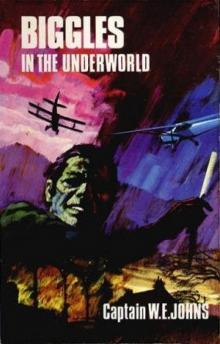 Biggles in the Underworld
Biggles in the Underworld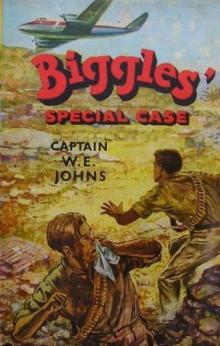 Biggles' Special Case
Biggles' Special Case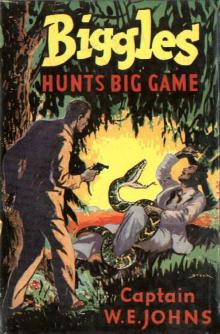 34 Biggles Hunts Big Game
34 Biggles Hunts Big Game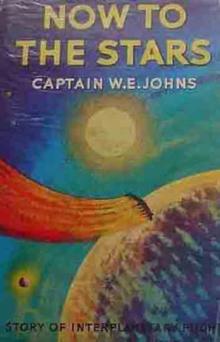 03 Now To The Stars
03 Now To The Stars 55 No Rest For Biggles
55 No Rest For Biggles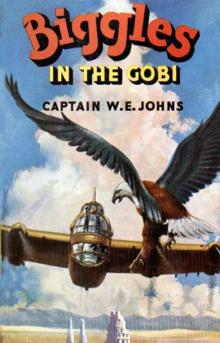 46 Biggles in the Gobi
46 Biggles in the Gobi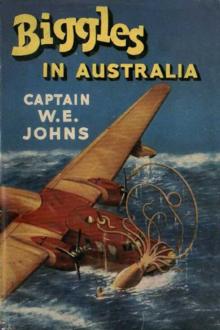 52 Biggles In Australia
52 Biggles In Australia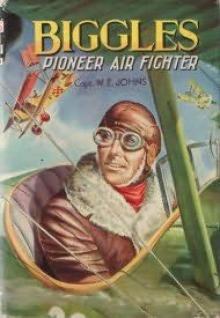 51 Biggles Pioneer Air Fighter
51 Biggles Pioneer Air Fighter 05 Biggles Flies East
05 Biggles Flies East 28 Biggles In Borneo
28 Biggles In Borneo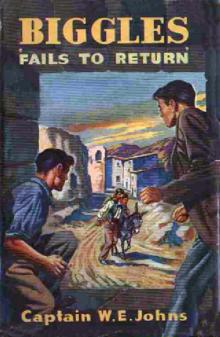 29 Biggles Fails to Return
29 Biggles Fails to Return 55 No Rest For Biggles (v2)
55 No Rest For Biggles (v2) Biggles Does Some Homework
Biggles Does Some Homework Biggles of the Camel Squadron
Biggles of the Camel Squadron 35 Biggles Takes A Holiday
35 Biggles Takes A Holiday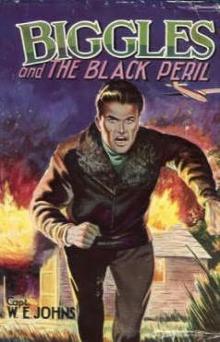 Biggles And The Black Peril (06)
Biggles And The Black Peril (06) 17 Biggles And The Rescue Flight
17 Biggles And The Rescue Flight Biggles Learns To Fly
Biggles Learns To Fly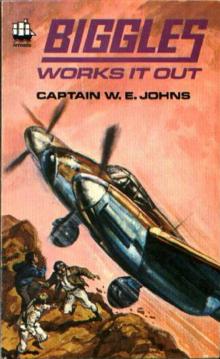 40 Biggles Works It Out
40 Biggles Works It Out 05 Biggles Learns To Fly
05 Biggles Learns To Fly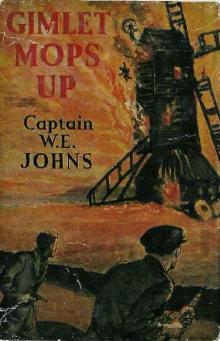 04 Gimlet Mops Up
04 Gimlet Mops Up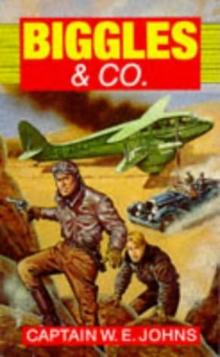 10 Biggles and Co
10 Biggles and Co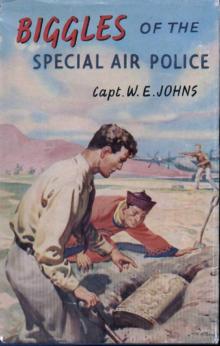 47 Biggles Of The Special Air Police
47 Biggles Of The Special Air Police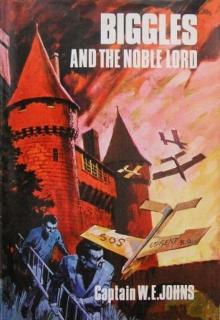 Biggles and the Noble Lord
Biggles and the Noble Lord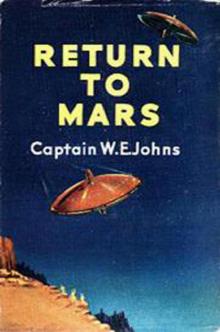 T2 Return To Mars
T2 Return To Mars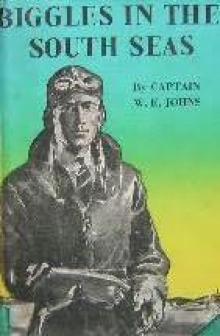 21 Biggles In the South Seas
21 Biggles In the South Seas No Rest For Biggles
No Rest For Biggles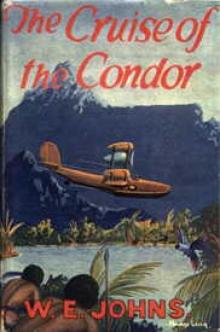 Biggles In The Cruise Of The Condor (02)
Biggles In The Cruise Of The Condor (02)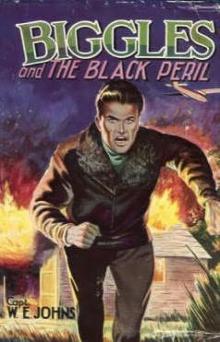 06 Biggles And The Black Peril
06 Biggles And The Black Peril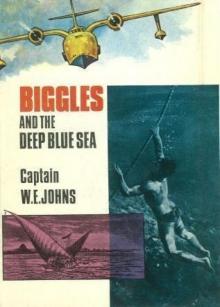 Biggles and the Deep Blue Sea
Biggles and the Deep Blue Sea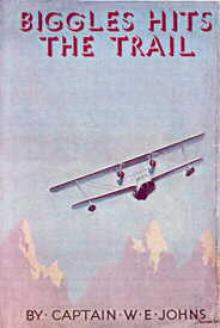 06 Biggles Hits The Trail
06 Biggles Hits The Trail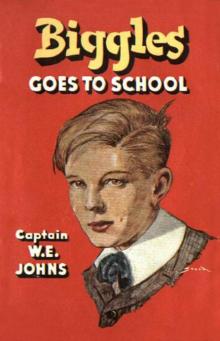 39 Biggles Goes To School
39 Biggles Goes To School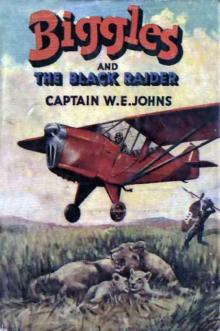 44 Biggles and the Black Raider
44 Biggles and the Black Raider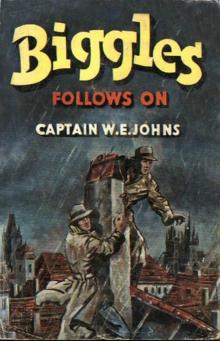 42 Biggles Follows On
42 Biggles Follows On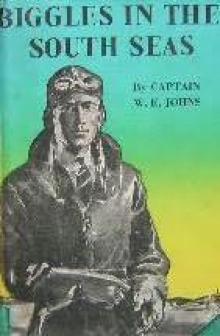 Biggles In the South Seas
Biggles In the South Seas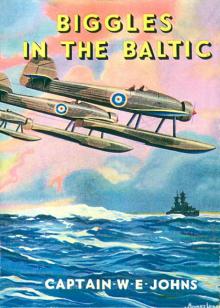 21 Biggles In The Baltic v3
21 Biggles In The Baltic v3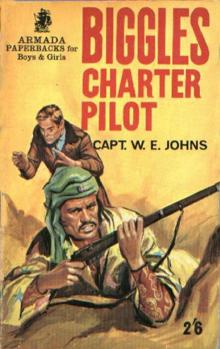 27 Biggles - Charter Pilot
27 Biggles - Charter Pilot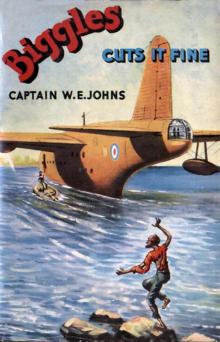 49 Biggles Cuts It Fine
49 Biggles Cuts It Fine 51 Biggles Foreign Legionaire
51 Biggles Foreign Legionaire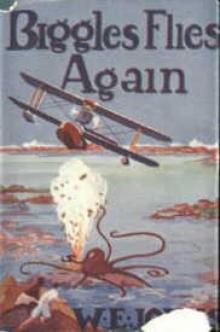 04 Biggles Flies Again
04 Biggles Flies Again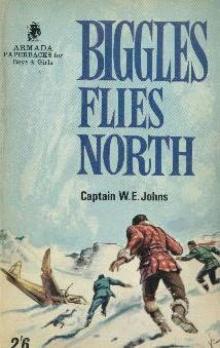 16 Biggles Flies North
16 Biggles Flies North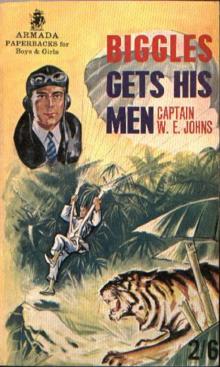 37 Biggles Gets His Men
37 Biggles Gets His Men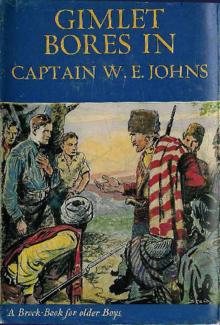 07 Gimlet Bores In
07 Gimlet Bores In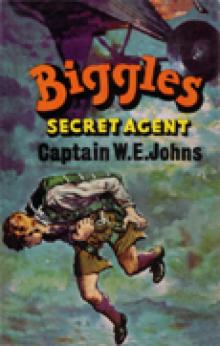 19 Biggles Secret Agent
19 Biggles Secret Agent 32 Biggles In The Orient
32 Biggles In The Orient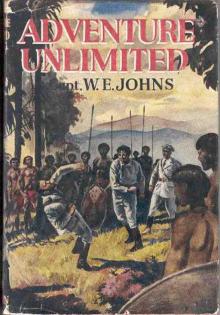 Adventure Unlimited
Adventure Unlimited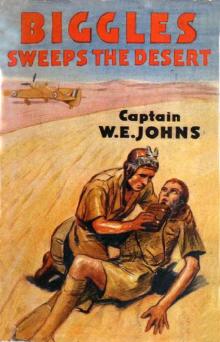 26 Biggles Sweeps The Desert
26 Biggles Sweeps The Desert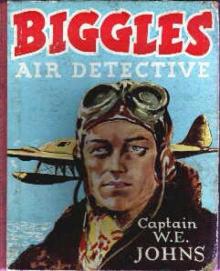 Biggles Air Detective (43)
Biggles Air Detective (43) 36 Biggles Breaks The Silence
36 Biggles Breaks The Silence 14 Biggles Goes To War
14 Biggles Goes To War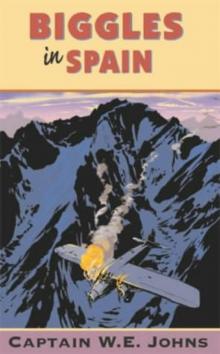 18 Biggles In Spain
18 Biggles In Spain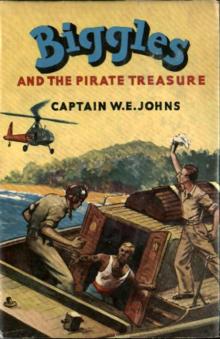 50 Biggles and the Pirate Treasure
50 Biggles and the Pirate Treasure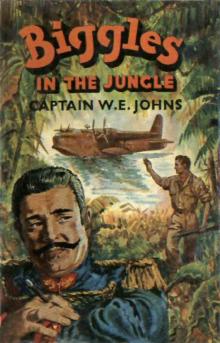 25 Biggles In The Jungle
25 Biggles In The Jungle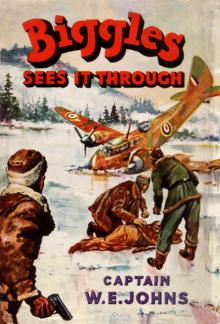 23 Biggles Sees It Through
23 Biggles Sees It Through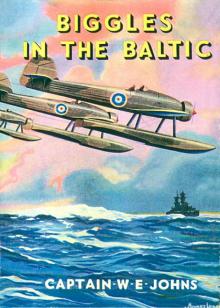 21 Biggles In The Baltic
21 Biggles In The Baltic 24 Spitfire Parade
24 Spitfire Parade 38 Another Job For Biggles
38 Another Job For Biggles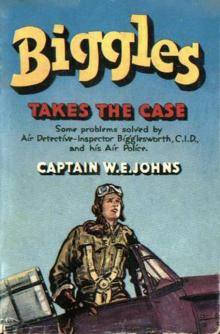 41 Biggles Takes The Case
41 Biggles Takes The Case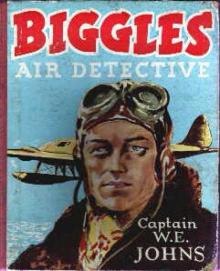 43 Biggles Air Detective
43 Biggles Air Detective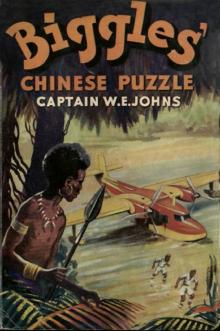 53 Biggles Chinese Puzzle
53 Biggles Chinese Puzzle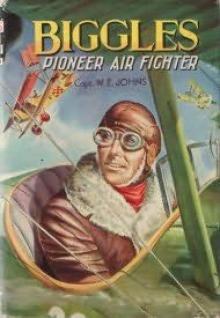 Biggles Pioneer Air Fighter (51)
Biggles Pioneer Air Fighter (51)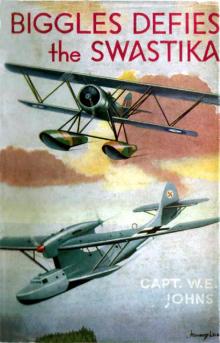 22 Biggles Defies The Swastika
22 Biggles Defies The Swastika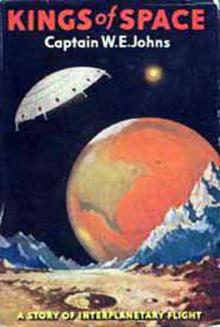 01 Kings Of Space
01 Kings Of Space